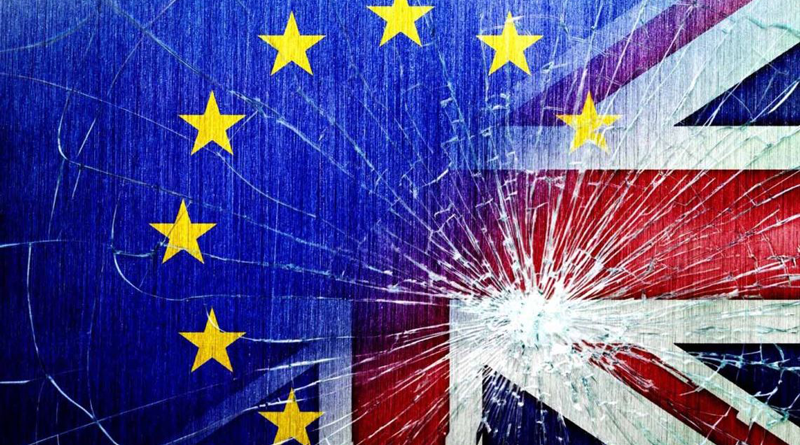British MPs vote overwhelmingly against 2nd Brexit referendum
British MPs on Thursday voted massively against delaying Brexit in order to hold a second referendum, dashing the hopes of pro-European campaigners who want a new public vote.
Three years after Britain voted to leave the European Union, only 85 MPs voted in favour of the amendment and 334 voted against, with most lawmakers from the main opposition Labour Party abstaining from the vote.
Prime Minister Theresa May grudgingly granted the vote after Parliament twice rejected her EU divorce deal and also ruled out leaving the EU without an agreement.
Withdrawing from the EU without a deal could mean major disruptions for businesses and people in the U.K. and the 27 remaining countries.
The vote in Parliament was on whether to seek a delay of at least three months to Brexit, which currently is due to take place March 29.
The legislative defeats have shredded May’s authority and obliterated her control of a fractious Conservative minority government.
On Wednesday, a dozen government ministers abstained rather than support May’s bid to keep a no-deal Brexit as an option, while another voted against, and resigned.
Despite the rebuffs and the political chaos, May has signalled she will try a third time to get backing for the agreement next week.
She was proposing that Brexit be delayed until June 30 — but only if she Parliament approves her Brexit deal.
She warned Brexit supporters who oppose her deal that if no withdrawal agreement is passed in the coming days, the only option will be to seek a long extension that could mean Brexit never happens.
Any delay in the Brexit process would require the unanimous approval of all 27 remaining EU member states.
Officials and national leaders in the bloc are exasperated at the events in London. They have said they will approve an extension if there is a specific reason, but don’t want to provide more time for political bickering in Britain.
“Under no circumstances an extension in the dark!” tweeted the European Parliament’s Brexit coordinator, Guy Verhofstadt. “Unless there is a clear majority in the House of Commons for something precise, there is no reason at all for the European Council to agree on a prolongation.”
Belgian Prime Minister Charles Michel said the EU needed “more decisions” from London.
May’s British opponents are trying to break the deadlock by grabbing the Brexit controls away from her, although it’s far from clear if Britain’s divided Parliament can agree on a way forward.
Some lawmakers have been pressing for a series of votes in Parliament on different Brexit options — including a closer relationship with the bloc than the government wants — to see if any can command a majority.
Bowing to pressure, deputy prime minister David Lidington said that if May’s deal is not approved by next week, the government will “facilitate” votes in late March or early April “to seek a majority on the way forward.”
Parliament is also scheduled to vote Thursday on several other options, including a call to use a Brexit delay to organize a new referendum on Britain’s EU membership. Another will try to prevent May bringing her EU twice-rejected divorce deal back for a third vote.
May has refused to abandon her unpopular deal, and is seeking to win over opponents in her own party and its Northern Irish political ally, the Democratic Unionist Party.
Alan Wager, a researcher at the U.K. in a Changing Europe think tank, said May faced a struggle to overturn a 149-vote margin of defeat in Parliament this week.
“It’s still really difficult to see how the numbers stack up for Theresa May, but she’s giving it one more go,” he said.
The EU, meanwhile, is reluctant to postpone Brexit beyond the late May elections for the European Parliament, because that would mean Britain taking part even as it prepares to leave.
The bloc is more open to a long delay to allow Britain to radically change course — an idea favored by pro-EU British lawmakers who want to maintain close ties with the EU.
“I think we should suggest to the Europeans a good, long delay,” said Conservative lawmaker Ken Clarke. “Go back to square one and work out … over a proper time, the final relationship.”
European Council President Donald Tusk tweeted that he will appeal to EU leaders “to be open to a long extension if the U.K. finds it necessary to rethink its Brexit strategy and build consensus about it.”
The EU has also warned that Parliament voting against no-deal Brexit isn’t enough to stop it. By law, Britain will leave the EU on March 29, with or without a deal, unless it cancels Brexit or secures a delay.
Conservative lawmaker George Freeman suggested that May had been so damaged by Brexit that she should promise to quit to get her deal through.
“This chaos can’t continue,” Freeman said in a tweet. “Something has to give.”




